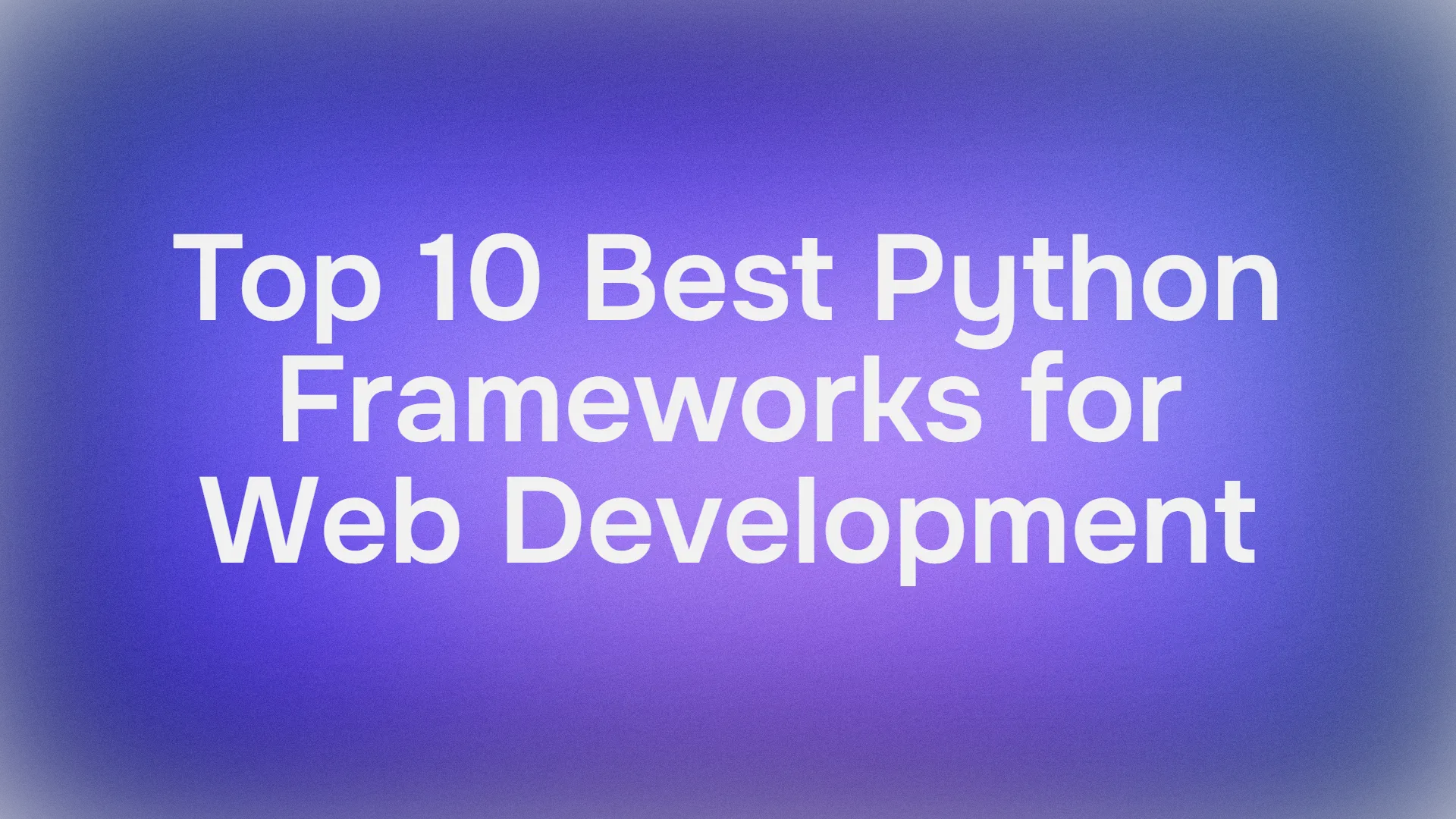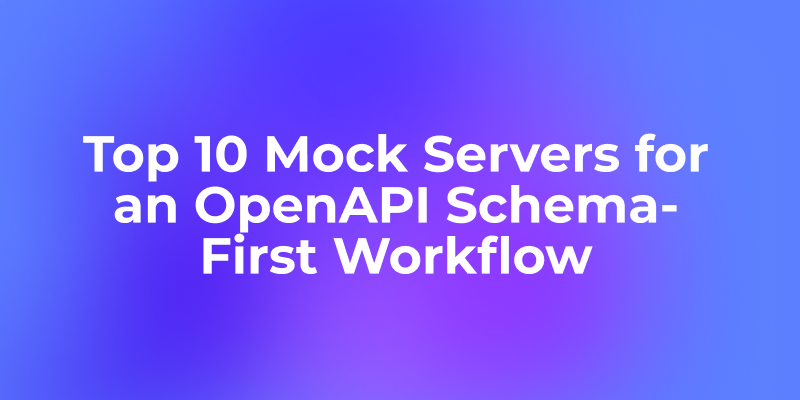In this constant changing digital world we're living in, developers and businesses alike must make sure that they will comply with the General Data Protection Regulation. The GDPR is an enforceable regulation that sets very rigid guidelines for data protection and privacy within the European Union, whereby it impacts how companies manage their datasets of personal information. Co nversely, a company that will fail to comply will face extreme fines but also reputation damage.
For that reason, taking advantage of the proper tools in light of the need to manage such complex requirements in an effective way is crucial. In this post, we take a closer look at the top 10 developer tools supporting GDPR compliance with respect to their features, benefits, and shortcomings. Along the way, we will point out where Apidog fits into the ecosystem and improves GDPR compliance.
What is GDPR?
GDPR compliance refers to the adherence to the General Data Protection Regulation (GDPR), a comprehensive data protection law enacted by the European Union (EU) in May 2018. It aims to enhance individuals' control over their personal data and streamline the regulatory environment for international business by unifying data protection laws across Europe.
The General Data Protection Regulation (GDPR) represents a significant shift in how personal data is managed and protected within the European Union. For developers, ensuring compliance with GDPR is not just a legal obligation but also a crucial aspect of maintaining user trust and safeguarding sensitive information. With the increasing scrutiny on data privacy, GDPR compliance tools have emerged as vital resources that assist developers in navigating complex regulatory requirements.
Importance of GDPR Compliance Tools:
- User Trust and Reputation: Compliance with GDPR fosters trust among users by demonstrating a commitment to data protection.
- Legal Protection: Utilizing compliance tools minimizes the risk of legal penalties associated with non-compliance, which can be substantial.
- Data Security: These tools help implement robust security measures to protect personal data from breaches and unauthorized access.
- Efficient Data Management: Compliance tools streamline data handling processes, making it easier for developers to manage user consent and data access requests.
Categories of GDPR Compliance Tools:
- Consent Management Platforms (CMPs): Tools like OneTrust help manage user consent and preferences effectively.
- Data Discovery and Mapping Tools: Assist in identifying and cataloging personal data across systems.
- Privacy Impact Assessment (PIA) Tools: Tools like TrustArc facilitate the assessment of privacy risks associated with data processing activities.
- Data Protection Impact Assessment (DPIA) Tools: DPIA tools help organizations evaluate and mitigate potential risks related to data processing.
- Encryption and Data Security Tools: Provide encryption to protect sensitive data.
- Monitoring and Audit Tools: Tools from the SANS Institute help in auditing and monitoring data access for compliance.
- Documentation and Policy Management: Platforms like DocuSign assist in managing compliance documentation securely.
- Training and Awareness Tools: Offer training on GDPR compliance for developers.
- API and Data Management Tools: Tools like Apidog ensure secure API management, facilitating proper data handling.
- Legal and Compliance Advisory Platforms: Services like LegalZoom provide legal guidance regarding GDPR compliance.
GDPR compliance tools are essential for developers to navigate the complexities of data protection regulations, ensuring both legal compliance and the safeguarding of user trust.
10 Best GDPR Compliance Software in 2024
1. OneTrust
OneTrust is a leading privacy management platform that offers a comprehensive suite of tools designed to help organizations comply with GDPR and other global privacy regulations. Its robust features make it a popular choice among enterprises seeking to streamline their compliance processes.

Key Features:
- Data Inventory and Mapping: OneTrust provides an intuitive interface for creating detailed data inventories and visualizing data flows across your organization. This feature helps identify where personal data resides and how it moves, which is crucial for GDPR compliance.
- Automated Privacy Assessments: The platform automates privacy impact assessments (PIAs) and data protection impact assessments (DPIAs), saving time and reducing human error.
- Consent Management: OneTrust offers comprehensive consent management solutions that allow businesses to capture, store, and manage user consent across multiple channels.
Pros:
- Efficient assessment automation reduces manual workload.
- Visual data flow representation aids in understanding data pathways.
Cons:
- The platform can be expensive for small businesses.
- Some users report slow data discovery speeds.
2. TrustArc
TrustArc provides a robust suite of solutions tailored to help businesses meet GDPR requirements effectively. It includes tools for conducting privacy assessments, managing user consent, and responding to data incidents.

Key Features:
- Privacy Impact Assessments (PIAs): TrustArc simplifies the process of conducting PIAs by providing templates and automated workflows.
- Consent Management and Reporting: The platform allows businesses to manage user consent efficiently and generate detailed reports for compliance audits.
- Automated Compliance Monitoring: TrustArc continuously monitors compliance status, alerting users to potential risks or non-compliance issues.
Pros:
- Offers a comprehensive privacy intelligence platform that integrates well with existing systems.
Cons:
- Pricing details are not readily available, which can be a barrier for some organizations.
3. Enzuzo
Enzuzo is an all-in-one platform designed to simplify GDPR compliance with a focus on consent management and handling data subject requests. Its user-friendly interface makes it accessible for businesses of all sizes.

Key Features:
- Built-in Cookie Scanning: Enzuzo automatically scans websites for cookies, ensuring compliance with cookie consent regulations.
- Consent Management Dashboards: The platform provides intuitive dashboards for tracking and managing user consent preferences.
Pros:
- Easy-to-use interface suitable for non-technical users.
- Automatic cookie detection streamlines compliance efforts.
Cons:
- Limited advanced features compared to larger platforms.
4. LogicGate
LogicGate offers an automated compliance solution that helps organizations manage GDPR processes such as data mapping, risk assessments, and incident management. It provides customizable workflows to streamline compliance efforts.

Key Features:
- Risk Assessments and Incident Response: LogicGate automates risk assessments and incident response processes, ensuring timely action in case of data breaches.
- Subject Access Request (SAR) Management: The platform facilitates efficient handling of SARs, allowing users to respond promptly to data subject requests.
Pros:
- Flexible customization options cater to specific organizational needs.
Cons:
- The platform has a steep learning curve for new users.
5. Apidog
Apidog is a versatile API development tool that supports GDPR compliance by ensuring secure data handling and privacy protection in API interactions. It plays a crucial role in safeguarding personal data during API development and testing.

Key Features:
- API Testing and Documentation: Apidog provides comprehensive tools for testing APIs, ensuring they meet security standards and comply with GDPR requirements.
- Data Protection Measures for APIs: The platform includes features that help developers implement data protection measures directly within their APIs.
Pros:
- Enhances API security by integrating GDPR-compliant practices into development workflows.
Cons:
- May require integration with other tools for full compliance across all areas of the organization.
6. Sprinto
Sprinto automates GDPR audits with predefined workflows and templates, making it easier for organizations to comply with privacy regulations without extensive manual effort.

Key Features:
- Automated Audit Processes: Sprinto streamlines audit processes by providing automated workflows that guide users through each step of the audit.
- Real-time Monitoring and Evidence Collection: The platform continuously monitors compliance status and collects evidence in real-time, ensuring readiness for audits at any moment.
Pros:
- Streamlines audit processes significantly, reducing time spent on manual tasks.
Cons:
- Limited integration options with other platforms may require additional customization efforts.
7. Transcend
Transcend offers automated privacy solutions that simplify managing data subject access requests (DSARs) and consent management under GDPR. Its focus on automation helps reduce the burden on privacy teams.

Key Features:
- Automated DSAR Management: Transcend automates the entire DSAR process, from request intake to fulfillment, ensuring timely responses to data subjects.
- Data Inventory and Mapping Capabilities: The platform provides tools for creating detailed data inventories and mapping data flows within the organization.
Pros:
- User-friendly interface makes it easy for teams to manage privacy tasks efficiently.
Cons:
- Basic functionality compared to more comprehensive platforms may limit its use in larger organizations with complex needs.
8. Osano
Osano is a data privacy platform that automates consent management and vendor risk assessments. It helps organizations adapt quickly to regulatory changes while maintaining strong privacy practices.

Key Features:
- Consent Management Automation: Osano automates the process of capturing and managing user consent across various digital channels.
- Vendor Risk Classification: The platform assesses vendor risks based on their privacy practices, helping organizations make informed decisions about third-party partnerships.
Pros:
- Streamlines compliance tasks with intuitive design features.
Cons:
- Limited reporting capabilities may require additional tools for comprehensive analysis.
9. Microsoft Purview Compliance Manager
Part of Microsoft’s suite of tools designed for managing GDPR compliance within Office 365 environments, Purview Compliance Manager helps enforce data minimization principles and conducts various assessments necessary under GDPR guidelines.
Key Features:
- Data Protection Risk Inventory Creation: The tool assists in creating detailed inventories of potential risks related to personal data processing activities within Office environments.
- Sensitive Data Classification: Purview Compliance Manager classifies sensitive information automatically based on predefined criteria set by administrators or regulatory bodies like GDPR itself!
Pros: Integrated seamlessly into Microsoft ecosystem offering robust assessment capabilities
Con’s: Requires Office365 E5 subscription limiting accessibility only those subscribed this plan
10 .Amazon Macie
Amazon Macie uses machine learning discover sensitive information provide insights potential security risks aiding organizations achieve maintain high levels GDPR-compliance

Key Features:
Automated Sensitive Data Discovery Security Risk Insights
Pro’s: Advanced Machine Learning Capabilities Seamless AWS Integration
Con’s: Best Suited AWS Users
Conclusion
Ensuring GDPR compliance helps protect the users' privacy and avoids heavy fines. Through these developer tools, organizations can protect their responsibilities in safeguarding data. Each tool is unique in its own way to handle aspects of GDPR compliance, ranging from consent management to automated audits. Apidog extends API security and brings in GDPR-compliant practices while developing software. Fundamentally, the selection of the right mix of tools depends on particular requirements and resources within an organization for achieving and sustaining high standards of data protection.



